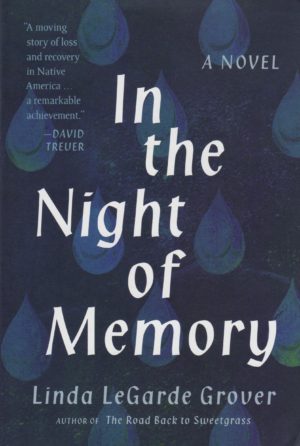
This newest effort by Duluth’s own Linda LeGarde Grover takes a bit of getting used to. What do I mean by that? Here’s my take.
In Memory, we follow the story of two Ojibwe sisters, Azure and Rain, from the moment their mother turns them over to the St. Louis County Social Services (welfare) Department to adulthood. Along the way, we meet caregivers kind and cruel, relatives from the Mozhay Point Reservation, strangers, and we find ourselves as observers moving with the girls on their journey from one foster home to another. The thing is; this is not a traditional linear narrative in a writing style most readers are familiar with. Having read Ms. Grover’s prior collections of short fiction (I’ll be honest and admit I haven’t read her poetry), I was expecting to find a replication of the storytelling used by Ms. Grover in her shorter pieces. It’s a style that is very reminiscent of Native American oral storytelling, a style I am familiar with having listened to many Ojibwe and Lakota and Cree parents, tribal social workers, and attorneys who appeared in front of me during my tenure as a district court judge. I’m happy to say that cadence and speech and tenor is honestly and authentically replicated in this novel.
There is, however, for the non-Native, some work needed to be done by the reader in following the twisting, turning, constantly changing narrative of the girls’ journey. But it’s an enjoyable task similar to that experienced by a white person diving into the diction and cadence of Hurston or other African American writers who remain loyal to their heritage in their writing. It’s work that some readers who prefer their storytelling more straightforward and easy to discern might shy away from after the first few chapters. That, in my view, would be ill-advised: Read the book to its conclusion and wonder about our nation’s treatment of Native Americans, the poverty of the reservation system, the hordes of young Native women gone missing, and the removals of whole tribes and children from the land and culture that nurtured their way of life.
In the end, this is a lyrical work, one chock full of lovely moments, dark sequences, and an awareness of heritage.
4 stars out of 5. A worthy, short read for any book club.
Peace.
Mark


